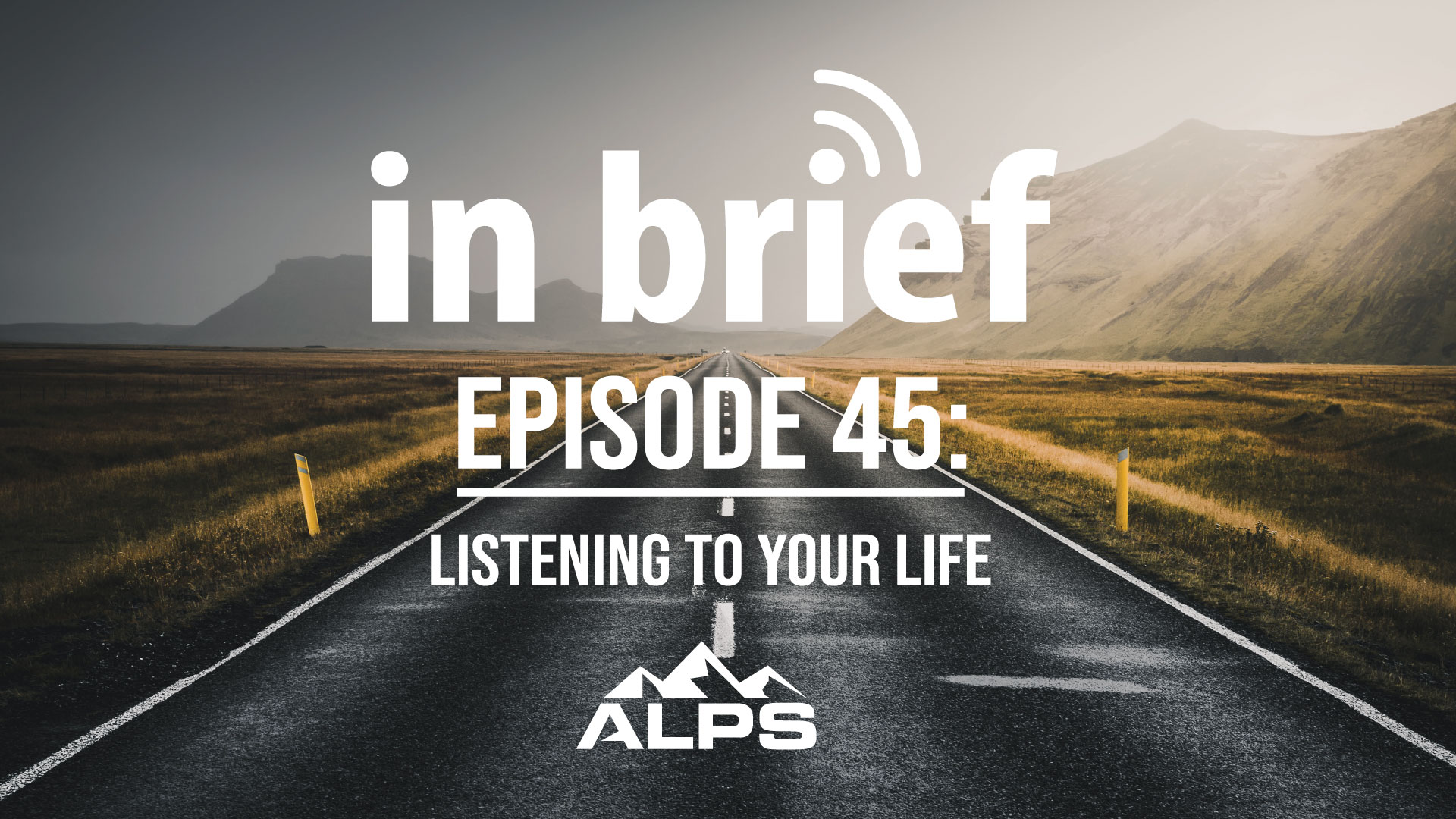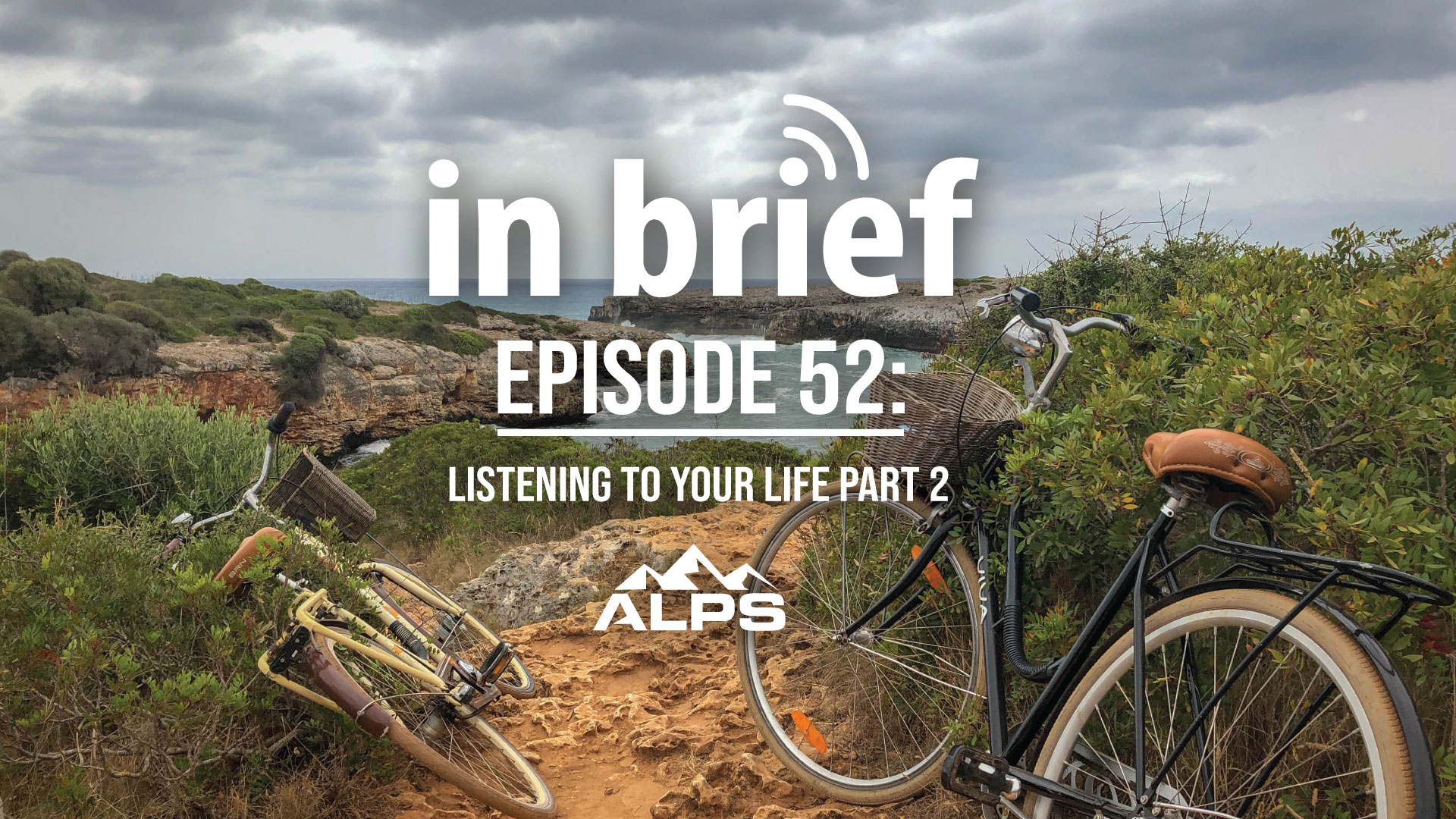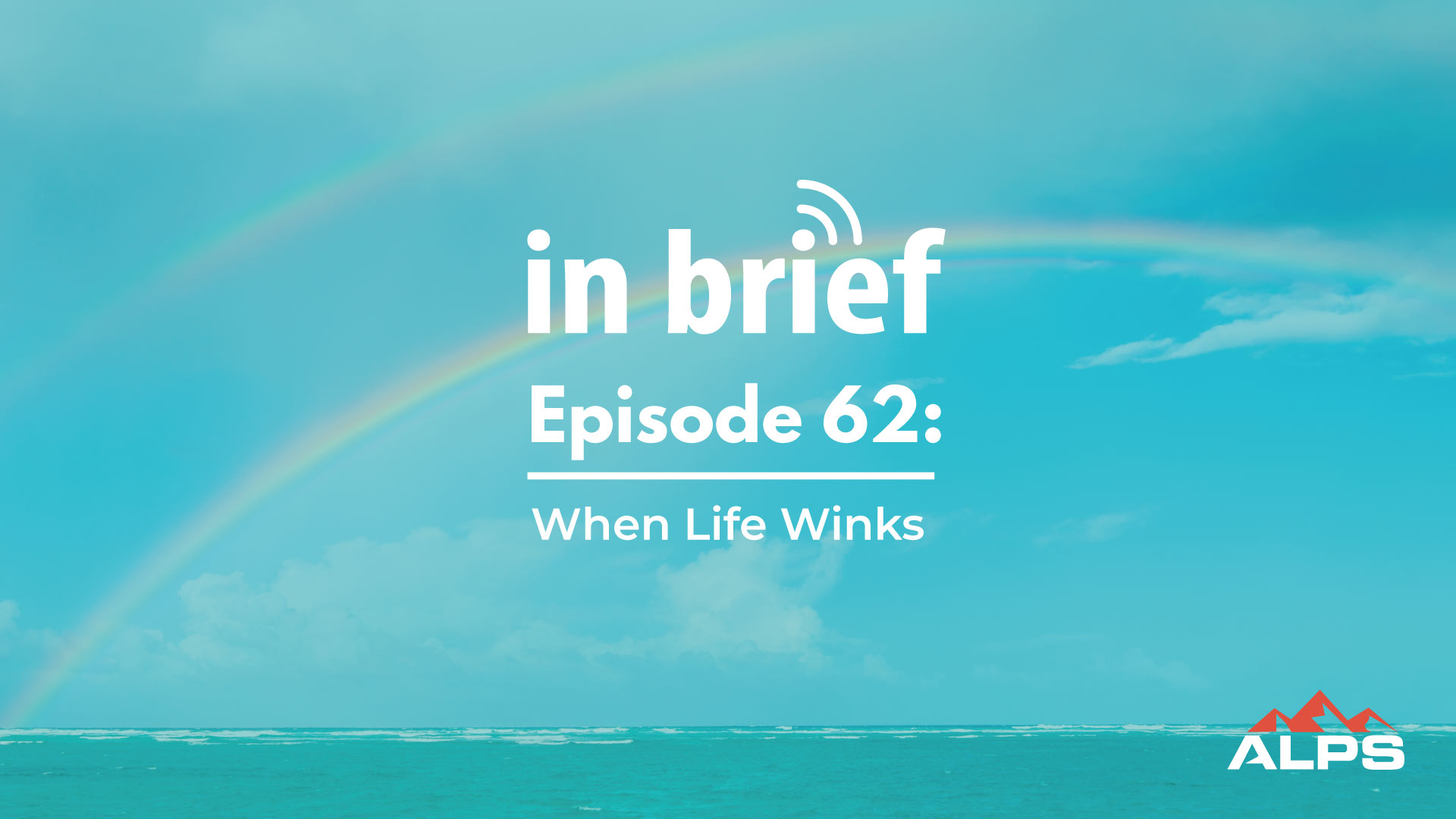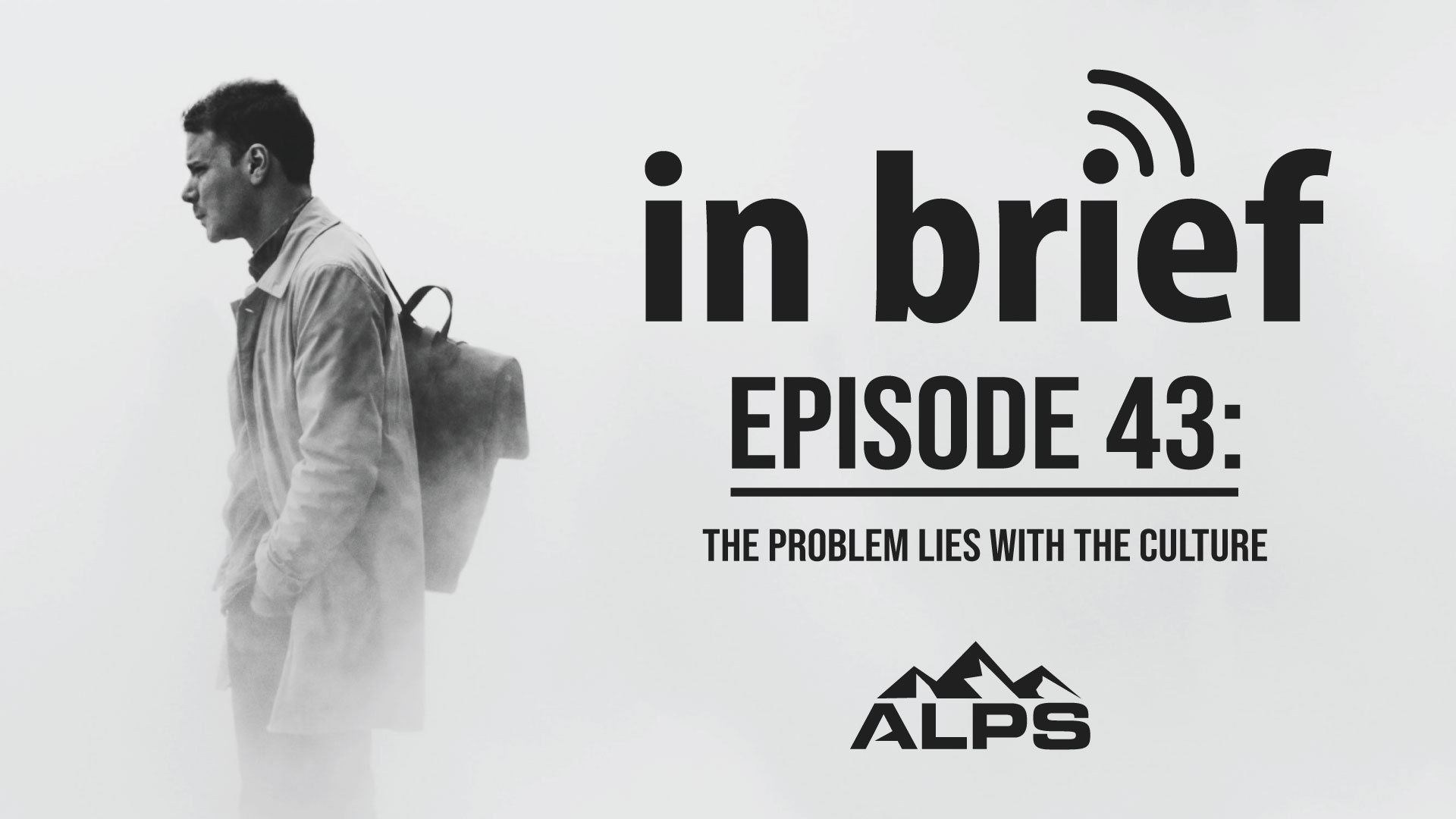16 min read
ALPS In Brief – Episode 52: Listening to Your Life Part 2
As Mark alluded to in Part 1 of Listening to Your Life, the journey isn’t over. Mark recaps the lessons learned over a season of cycling, exceeding...
We've crafted solutions tailored to your firm
The world of insurance for law firms can be confusing, and difficult to navigate. We've created this glossary because these common insurance terms should be easy to understand.
10 min read
 Mark Bassingthwaighte, Risk Manager
:
Apr 29, 2020 12:00:00 AM
Mark Bassingthwaighte, Risk Manager
:
Apr 29, 2020 12:00:00 AM

There are all kinds of finish lines in life. Some of those will be positive, and others won’t. So go ahead and feel what you feel, but remember the journey isn’t over. Sooner or later, you’re going to have to decide what’s next, figure out how to get there, and then start moving. Mark illustrates the importance and value of listening to your life.
Transcript:
MARK BASSINGTHWAIGHTE:
Hello, and welcome to ALPS in Brief, the podcast that comes to you from the historic Florence building in beautiful downtown Missoula, Montana. I’m Mark Bassingthwaighte, the risk manager here with ALPS. Today, I thought we’d take a little time to talk about listening. I’ve been blessed to have married my absolute best friend in life, and she and I are very honest with each other and have some crazy and interesting and wonderful conversations. At times she will be, like I said, very direct and honest. She’ll say, “Mark, you’re just not listening,” and she’s right. I mean, there are times, as she will describe and I readily agree, I have too many planes up in my head. I really am having trouble focusing and paying particular attention. But listening isn’t just a skill that is limited to communication between two individuals.
I, with this podcast, would like to talk about listening to one’s life and exploring a little bit about what that means in my experience. I would consider myself someone who does a pretty good job of listening to my life. I have seen a number of people have no idea what I’m talking about, no clue how to do it, and no desire to learn. I’ve seen some people even get hit, in my mind, upside the head by life with some meaning and something you’re here to learn, and they just don’t do the learning because they’re not looking for it, perhaps. Others are very, very good at this, particularly for the big, loud things that life has to say. But I would really like to explore looking at this on the day-to-day, because I think there are all kinds of learnings that can come up day-to-day if we just stop to take the time to listen and to look for the learning.
So let me give you an example of what I think about and what I mean when it comes to listening to one’s life. When I was a younger adult, there was a period of time where I was really into bike riding. It was primarily as a means of transportation, and also a way to get a little exercise during a commute. I learned to strip a bike down, clean it up, put it back together, and I had a lot of fun. Then kids, life, all kinds of things get in the way of that, and bikes pretty much got put away for a number of years.
I would say though, in the last three to four years, I’ve really started to get back into it, and I’ve really enjoyed it. I’ve been doing quite a bit of riding, both in the winter, sometimes because there’s just too much snow here you can’t get out, and in the club in terms of stationary bikes. But, boy, when spring’s here, you go. You tune the bike up a little bit, and you just get out and start riding.
So let me use this example of bike riding and share some things about what bike riding says to me and what I take away from it. It has been a great workout. I’ve put on a lot of miles, and to me it helps keep me in shape. I have found, at times, the more I ride, sometimes some pickup trucks actually, in the neighborhood, in particular, as I work my way around or through the neighborhood, are just going slow and getting in the way. There’s some obstacles there, and I’ve learned to just ride around them in a very safe and responsible way.
It’s a lot of fun to get out and ride, particularly when it’s a beautiful day and I can take some really long rides. I’ve been known to go as much as 40 miles in a day, which, for me, at 60, I think is a pretty good thing. But on the long rides, I need to remember, hey, take a phone, because sometimes you need to call for help if you have a bike breakdown and you don’t have on hand what you need to repair it, or serious weather changes. Things happen, so it’s helpful to have a phone. You take a little water because it’s important to stay hydrated. You always wear a helmet. Again, you never know what can happen.
We have a number of bike trails in the area, and there are some bike tunnels that go under roads and areas where paths dip down and go below railroad tracks and highways and things, and there are some pretty tight turns. I’ve learned to just approach with caution. Sometimes there’s another bike coming at me or somebody standing on a bridge fishing or a little ice in that tunnel because it’s still early in the season. I just don’t want to end up flat on the ground and just bruised up and bleeding from doing something stupid. I’ve learned, hey, when you have the wind at your back and, boy, an open road, you shift up, and you just take advantage of the support, and you have fun riding at a top speed. I really love that. Of course, at times, when circumstances change or conditions, perhaps, change, you might have an area with a lot of potholes or something, or you’ve got a hill to climb. You have to downshift. You have to adjust to make the ride enjoyable, perhaps, to not burn out.
So there’s lots and lots … I could go on for another 20 minutes on the kinds of things that you think about and learn as a result of riding on a regular basis. So I can take this experience and all the little things and sometimes bigger things that you learn and say, okay, that’s cool. I get better and more efficient at riding. I get healthier. I learn a few tricks. I get more competent and comfortable. But that’s not really listening. That’s just observing and perhaps learning a few things along the way, but that’s not really listening to what your life … what the experience can teach.
So let’s revisit some things and sort of apply it. I mean, that’s the goal. You have to look for the learning, and you do that by listening. But now you also need to apply the learning to make, for lack of a better description perhaps, a life lesson out of it. This is one of the things that … We have great kids, and they have all done so much. What I’m about to share that I hear from them sometimes isn’t unique to the kids. I’ve had other people say these kinds of things. But I like the context of young adults. We have four out of five in their 30s now. Sometimes we’ll be talking, and we’ll say … They’ll say to us, why do you think you’re right or we know more, we’ve experienced [inaudible 00:08:27]? I say, we just have perspective. We’re just older. There’s things we’ve learned. Yeah, dad, but you’ve never gone through this before or that before. You really don’t know. My response, I don’t need to experience every little thing to have some insights into how something might play out. You kind of get where I’m going?
So with that in mind, let me, again, revisit riding and share some thoughts about what I’ve learned as a response to riding over the last three or four years. I’m talking about now … I’m riding, 5, 600, 700 miles throughout the season, just outdoors. In fact, my goal this year … We’ll see. I’m going to give it a shot, see if I can get 1,000 miles before winter hits. Wish me luck. That’s a lot of riding.
So one of the things that I’ve learned that I really have taken to heart, I need to stay alert, and I never want to go full bore into a tight curve, because something unexpected really is just around the bend. How do I apply that? What does that mean? Perhaps let’s even talk about it in the context of a legal career. Well, when I think about this learning, here’s just one example. Just because a new practice area is about to seriously heat up, that isn’t a good reason in and of itself to jump into this practice area before you have time to come up to speed and/or to develop any necessary internal processes that will enable you to be competent in the delivery of these new legal services. To state it another way, do this kind of stuff is really an accident waiting to happen. So stay alert. Don’t go full bore into the unknown. You need to prepare. You need to be intentional about it. You need to look for problems and anticipate.
Another one, and I got to thinking about this just the other day, and I don’t know why it struck me, but it really did. I noted. It’s really extremely difficult to balance on a bike hands-free while the bike is stationary. Try doing that at a stop sign, as an example. It’s extremely difficult, but particularly to do it for very long, but it really gets quite a bit easier the faster you go. I just started to think about that. What could be a life lesson out of that? Well, for me, it’s this. If you want to develop a skill and truly become proficient at it, you need to learn to take a few risks while always moving forward. Stated another way, there is value in learning to say yes to opportunities that push your comfort zone. I mean, as I see it, that’s how you grow, professionally and as a person.
How about this? I will share. Over the years, I’ve had a few what I’d describe as close calls. Once in a while, the close call was intentional in the sense somebody was messing with me. At other times, it’s just crazy things happen when you’re riding on a road or a highway. I try not to do that a lot, but here in Montana sometimes you need to, to get to the trails or the pass that you really want to ride. So one of the things that I’ve learned is this. Sometimes someone will try to mess with you in the middle of a ride. Know that it can happen. Do what you can to be prepared, and keep pedaling. Most importantly, don’t let it frighten you. You still have more than a few miles to go.
Now what can you take away from that? Well, again, in the context of practicing law, here’s one of the thoughts that I have. Some people will try to intimidate you. Perhaps it’s an aggressive, over the top negative online review or opposing counsel practicing incivility in the extreme during a deposition. There’s all kinds of things you could create here. But the fact that these things happen, that says nothing about you. Don’t let this get under your skin, because you still have work to do. Continue to focus on what lies ahead.
Now I talked a little bit earlier about … I try to stay in shape and, during the winter season, keep riding. It’s stationary bikes. So I’ll go out to the club and take care of that, in terms of trying to work out. But here’s a learning from that sort of experience. I will say, even if it’s bad weather at times, during the season, you have to make this choice sometimes. Do I want to go out on the road? Or do I want to just go to the club and watch TV as I ride? Yes, I have to admit, and I’ve learned this, it is a lot easier to ride indoors, particularly when the weather isn’t the best. It’s an easy choice. But no matter how fast you pedal, you still end up where you started, and I think that’s important to appreciate. What that means to me is, if I want to get anywhere in my career and in my own life, I actually have to go outside and make it happen. No one’s going to do it for me.
Here’s another one that I like, and sometimes you’ll see people. They just don’t want to do this, and I get it. I do. I get it. But I’m a firm believer. Always wear a helmet, because it’s your head we’re talking about, the place where you keep all your intellectual capital, things like how to ride a bike and how to get back home. Why is that important? What’s the takeaway for me, or what’s the learning that life’s trying to tell me with that insight? Well, in my mind, it’s if you fail to prioritize taking care of yourself, all you end up doing is increasing the risk of injury or illness, which can have serious consequences, to include the ability to even earn a living.
There are times when I will ride in circles, and what I mean by that … And it’s not a negative. It’s just I have a loop so that, if I have a little time over lunch, I can go out, and I’m not pounding out 10 miles out of town and back. You just can’t do that over a lunch hour. So I have a loop, and I ride locally. At other times, nice days, weekends, I will do some extended riding. Sometimes it’s just exploring, and sometimes it’s very intentional. But one of the things I’ve learned from going off the loop and going out and exploring is some trails eventually end. Once there, it’s good to take a little time to feel what you feel, but you need to get back on the bike because the ride isn’t over.
I started to think about that too. What does that teach me? Here’s what I take away from finding that some trails just come to an end. Endings happen. Now think about a career change, a retirement, a divorce. There are all kinds of ends that happen in life. Some endings are going to be positive, and others aren’t. So go ahead and feel what you feel, but remember the journey isn’t over. Sooner or later, you’re going to have to decide what’s next, figure out how to get there, and then start moving.
So the point of this whole short podcast is just to share a skill or an insight that is meaningful to me that has been valuable to me in so many ways. Sometimes the learnings, the insights that come from practicing learning to listen to your life are small and perhaps inconsequential in some ways. One of the things I’ve learned in that genre is always have a rubber band with you. You’d be surprised how often the one thing I need to fix a minor problem is a rubber band. It comes in handy all the time. I think it should be on the list. The three things that you need in life are a good can of WD-40, some great duct tape, and some rubber bands, and you’re good to go.
But more often the learnings are a bit more significant and can really help me keep focused, keep moving forward. So I guess I’ll just leave it at that and share what I’ve been musing about, what I’ve been thinking about on rides in recent months, and encourage you. There is value in taking time to listen to what your life is saying, even if it’s just a whisper. That’s it, folks. I hope you found something of value today, and please don’t hesitate to reach out any time if there’s any other topics you’d like to hear, if you just have a question or concern you would like to discuss. You can reach me at mbass@alpsinsurance.com. Thanks much. Have a good one. Bye, bye.
ALPS In Brief Podcast Intro/Outro Music: Walk In The Park by Audionautix is licensed under a Creative Commons Attribution 4.0 license. https://creativecommons.org/licenses/by/4.0/
Artist: http://audionautix.com/
Since 1998, Mark Bassingthwaighte, Esq. has been a Risk Manager with ALPS, an attorney’s professional liability insurance carrier. In his tenure with the company, Mr. Bassingthwaighte has conducted over 1200 law firm risk management assessment visits, presented over 600 continuing legal education seminars throughout the United States, and written extensively on risk management, ethics, and technology. Mr. Bassingthwaighte is a member of the State Bar of Montana as well as the American Bar Association where he currently sits on the ABA Center for Professional Responsibility’s Conference Planning Committee. He received his J.D. from Drake University Law School.

16 min read
As Mark alluded to in Part 1 of Listening to Your Life, the journey isn’t over. Mark recaps the lessons learned over a season of cycling, exceeding...

14 min read
Hello, I’m Mark Bassingthwaighte, the risk manager with Alps and welcome to another episode of ALPS In Brief, the podcast that comes to you from...

7 min read
ALPS Risk Manager Mark Bassingthwaighte shares two real-world stories of attorneys struggling with behaviors that often lead to malpractice claims....